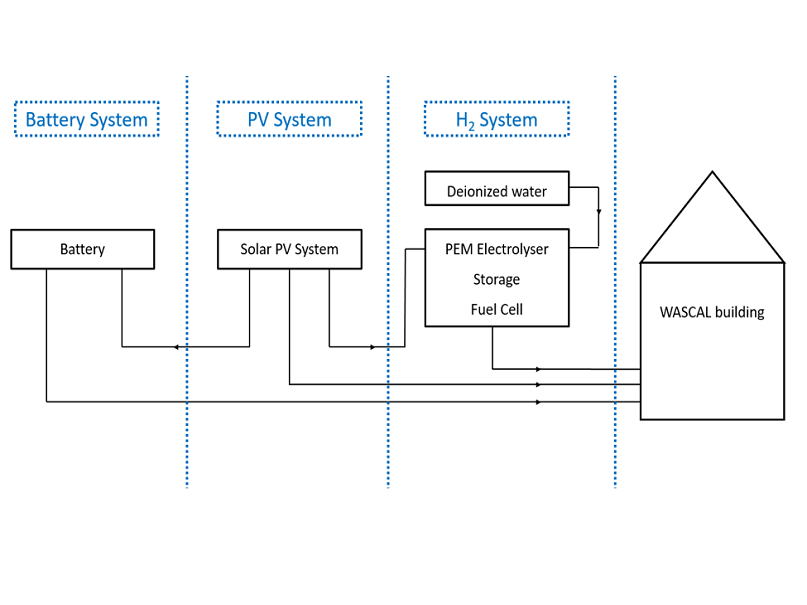Non-conventional energy storage system

Despite of its richness in renewable energy sources, especially in solar energy, Niger’s electricity production is mainly based on fossil fuels and imports from surrounding countries. Therefore, the increasing utilization of renewable energy is a main goal for becoming more independent from import, using less fossil fuels and also for bringing electricity to villages that are far away from the public grid. The major drawback of renewable energies is the fluctuating and not plannable availability. A solution for achieving an uninterrupted power supply, fed by renewable energy, are energy storage systems. In this project, a non-conventional approach of energy storage is built and investigated. A first impression on the concept is given in the figure above.
The so-called WASCAL building, which is housing the staff of WASCAL (West African Science Service Centre on Climate Change and Adapted Land Use) at the UAM (Université Abdou Moumouni) in Niamey, is already existing and connected to the grid. In the scope of this project, a solar PV system is built close to the university and the WASCAL building. During the day the solar PV systems supplies the building with electricity as long as it is available. Surpluses of electricity are used in the H2 system for the production of green hydrogen via electrolysis. When the demand of the building for electricity (for cooling of the building, computers, lights etc.) exceeds the supply by the solar PV system, the fuel cell of the H2 system uses the produced and stored green hydrogen for supplying the WASCAL building with energy. Thereby an uninterrupted power supply is achieved. A small battery, which is also charged by excess solar energy, is used as a backup system for basic functions like lights. Research is performed on the overall systems efficiency, the reliability of the system and the single systems performance.